Former FBI Ten Most Wanted Fugitive, Eric Rudolph, according to the FBI, was arrested in 2003 after being found guilty of a string of bombings that took place in Atlanta in the 1990s. Award-winning journalists John Archibald and journalism professor Becca Andrews hosted a podcast titled “American Shrapnel,” taking a deep dive into Rudolph.
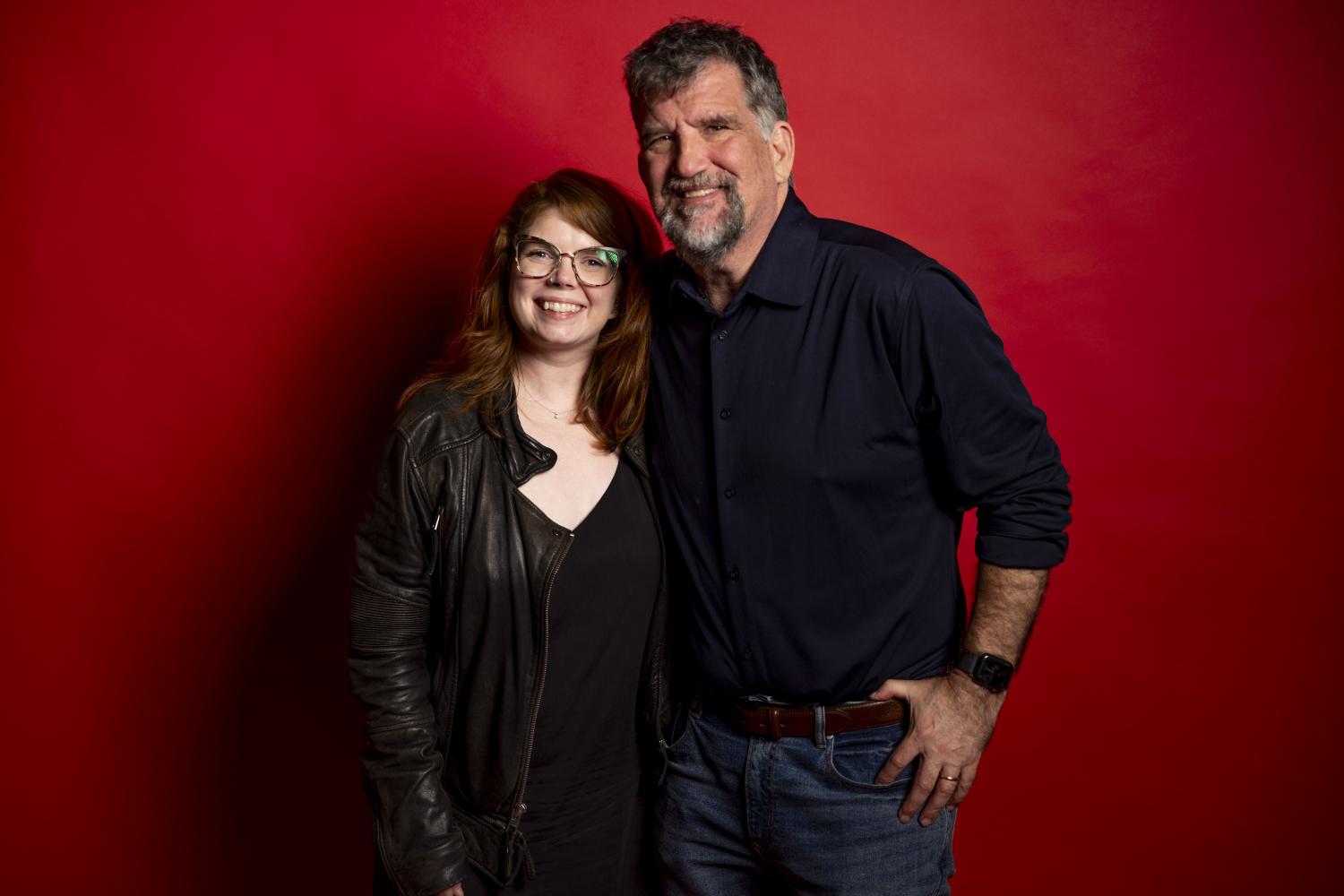
Over the course of three years, Andrews and Archibald took a journey with John Hammontree, their executive producer at Alabama Media Group. During this journey, they were discovering files, interviewing witnesses and speaking to survivors to complete the eight-episode podcast. On Sept. 3, the podcast released its concluding episode. As of Sept. 2025, the podcast has been rated a 4.8 out of 5 stars on both Apple Podcasts and Spotify.
Andrews said she met Archibald through Hammontree, who approached them and thought they would make a good podcast together. She said Archibald had covered the crime when it happened. She also said that she had a good political and millennial perspective to work together.
“My favorite part has been getting to work with this team,” Andrews said. “It’s really cool to find people who get you, but also push you to be a better journalist and a better version of yourself.”
Andrews said that they have a group text named “The Blob Man Chronicles,” referencing Rudolph’s nickname. The FBI gave him this nickname because the only image they had of him was grainy and indistinct, according to the podcast. This made him appear more like a shapeless blob than a person.
“Archibald actually wanted to name the podcast ‘The Blob Chronicles,’ but I was like absolutely not,” Andrews said. “It’s really cool to have that group text, though; I value it a lot.”
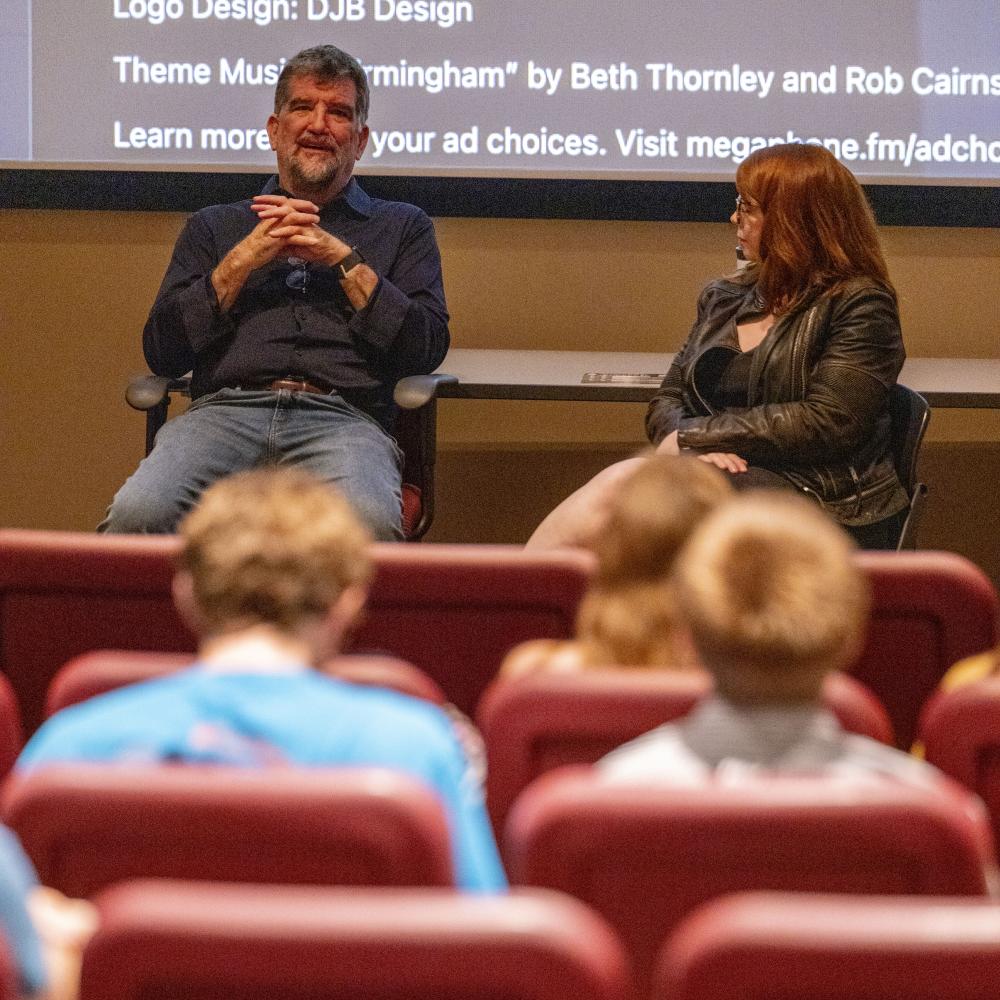
Andrews said that she and Archibald often joke that the podcast is like a book. She said she has never done a narrative podcast before. She said that it took her a while to learn how to talk for audio.
“At one point, Hammontree had me reading Dr. Seuss books to help me learn to talk better for audio,” Andrews said.
Andrews said that recording the podcast was one of the easy parts in some ways. However, the writing, researching and interviewing are what were the most time-consuming.
“I did stretch myself,” Andrews said. “It took me forever to figure out how to write a script and write conversationally.”
She said she hopes that people listen to the podcast. Andrews also said that it is something she and Archibald are really proud of.
On Thursday, Sept. 4, Archibald and Andrews met in Jody Richards Hall auditorium to discuss their podcast. Joining them in the discussion was history professor Katherine Lennard, who said she is currently co-teaching a course with Andrews.
“I’ll jump at any opportunity to hear more about her work,” Lennard said. “I think the ‘American Shrapnel’ podcast tells a really important story. I was excited to be in conversation with two journalists whose minds I admire.”
Andrews said that a student introduced her and Lennard because the student thought they would “echo” each other.
“I always asked her what I should be reading and who I should be interviewing,” Andrews said. “She helped to shape this.”
Junior Peyton Eversoll from Bowling Green said that when she was listening to the podcast, she thought it was interesting to learn about something she had never even heard of before.
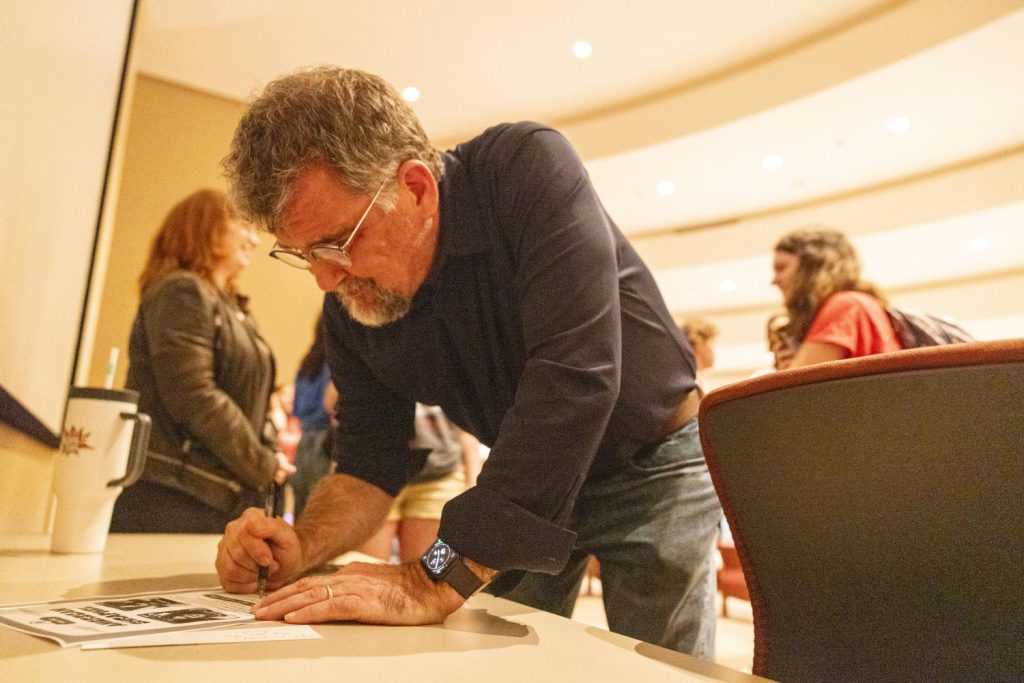
“I usually listen to podcasts, but this one was different than what I have ever listened to before,” Eversoll said.
Lennard said one of her favorite parts of the podcast was when they spoke about the reporting process. She said that as a history professor, she noticed that Andrews and Archibald evaluated information with a critical eye, just as historians do.
She said the podcast can offer listeners a well-researched historical narrative while also prompting them to reflect on the intellectual work involved in documenting the past.
Eversoll said she could see the podcast being referenced in future history textbooks. She said it was something she could see taking up a few pages in a chapter.
“I was struck by the moments where Andrews and Archibald highlight the contingent nature of historical events and how seemingly meaningless actions shaped the course of history in important ways,” Lennard said.
Tying back to the present day, Andrews said during the discussion that they saw connections between the 1990s rhetoric and current political tensions. She said that they felt like the story wasn’t well-remembered. She said that many people didn’t know the true details about Rudolph.
As experienced journalists, Archibald said during the discussion that he and Andrews saw a chance to examine the media’s past mistakes and provide deeper context into the ideological movements behind the bombings.
Lennard said that the reporting and production team did a good job of telling a complex story. She said that although a lot of characters with complicated backgrounds are introduced, they never managed to lose the listener’s interest.
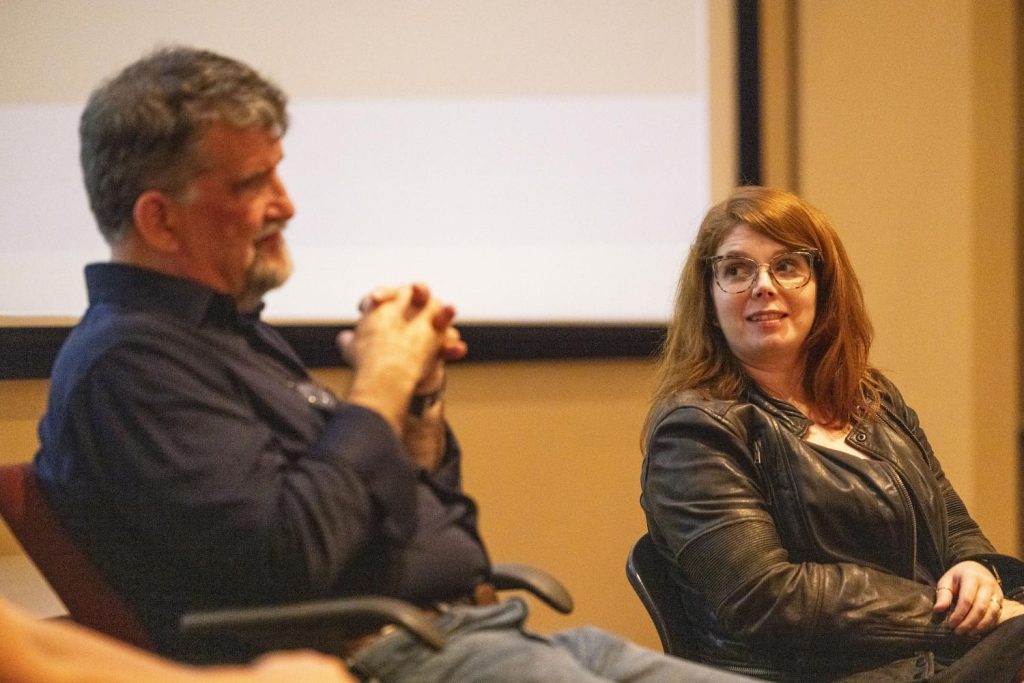
She said a good example of this was when the “speedo boys” are mentioned in episode 5 titled “Scar Tissue.” They kicked a backpack that was abandoned while searching for beer. Upon kicking the backpack, the group of boys unknowingly shifted the explosive that was inside and saved a lot of lives.
Lennard said that the podcast reflects the dedicated work of everyone who contributed.
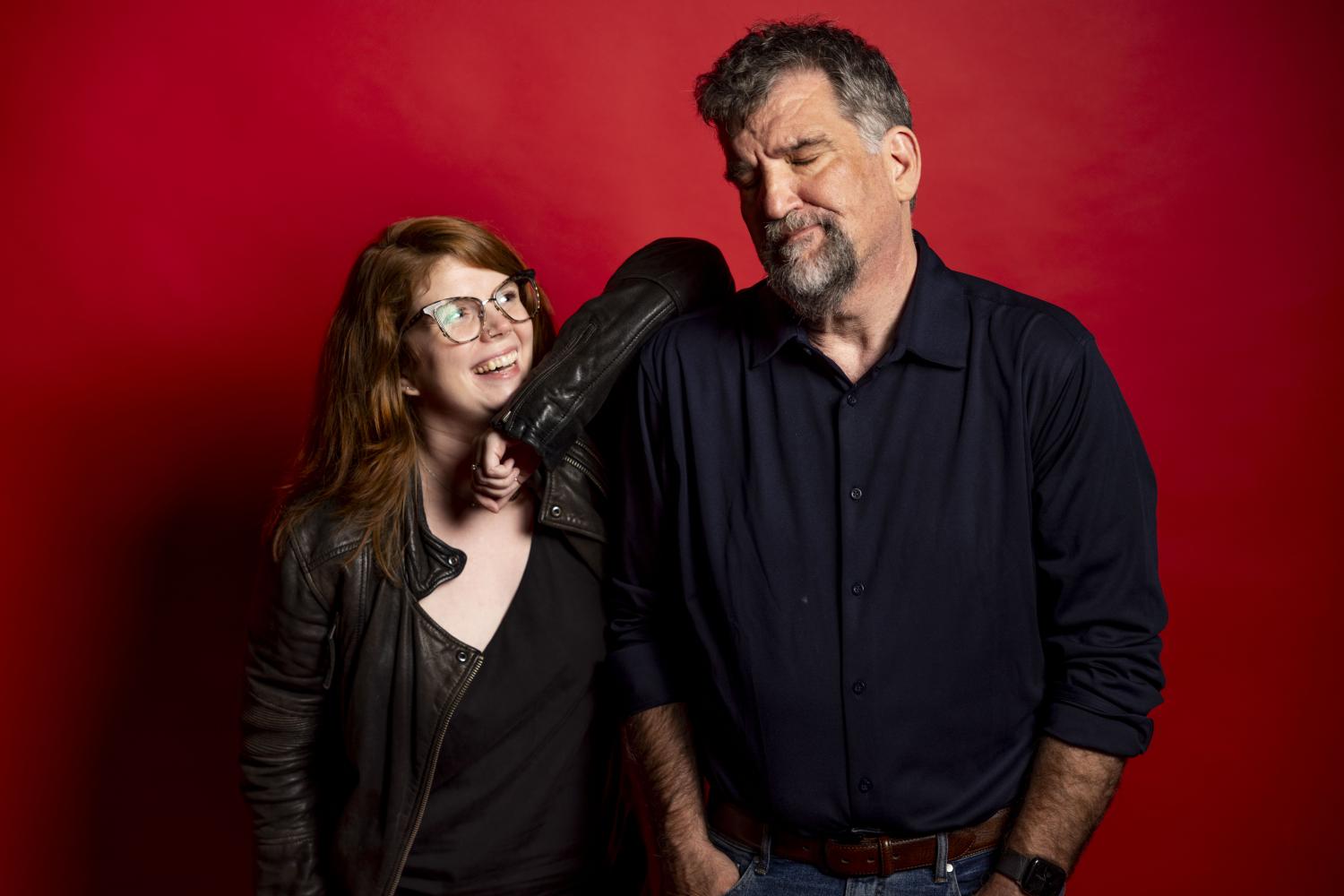
“It’s worth reminding WKU students that professor Andrews did this work while providing feedback on stories for multiple classes and meeting other deadlines,” Lennard said. “I suggest buying her a coffee.”


